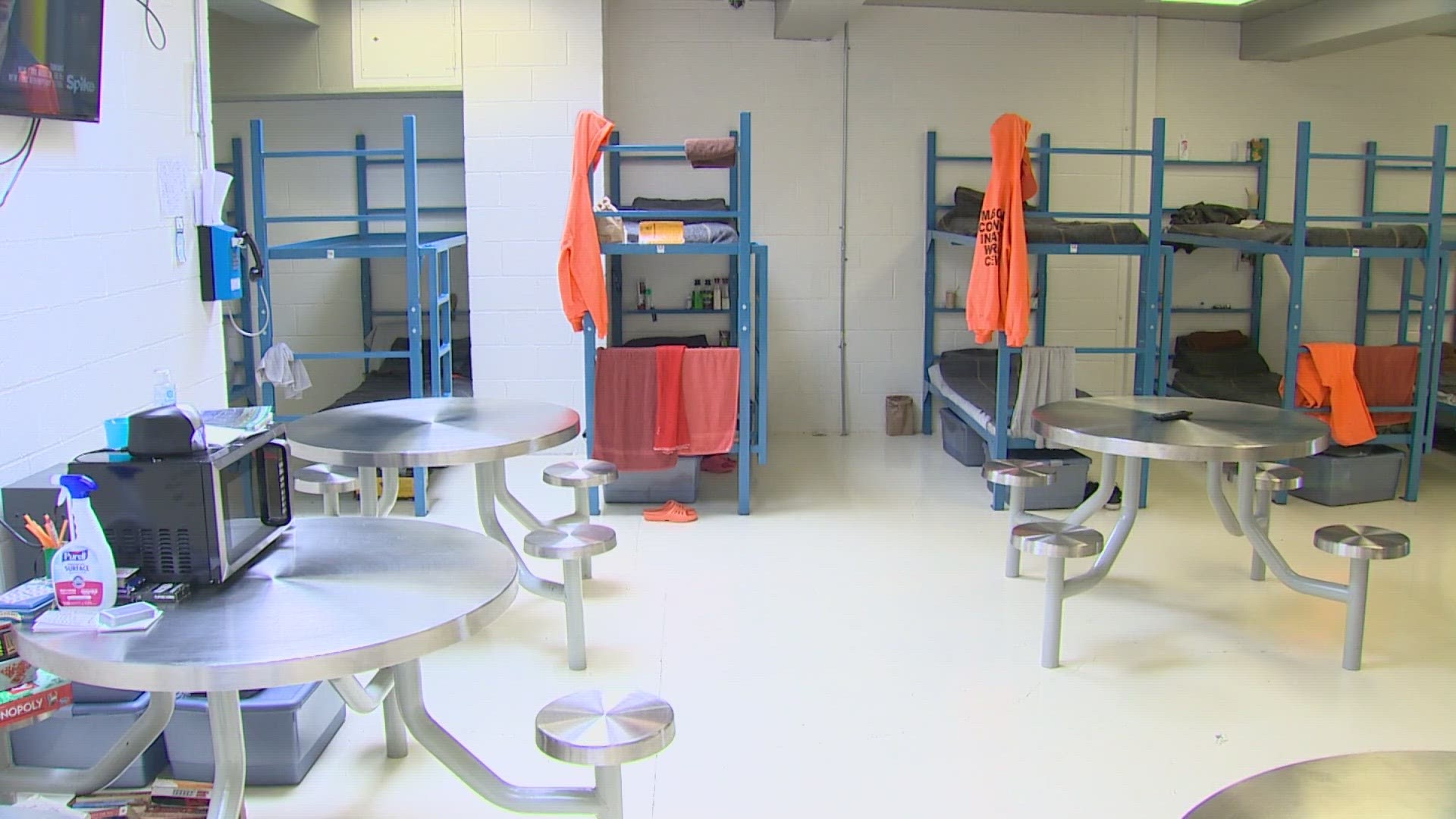PIERCE COUNTY, Wash. — Prosecutors from 22 Washington state counties have filed a lawsuit against the Department of Social and Health Services (DSHS) over the agency’s public policy decision to stop evaluating and treating mentally ill criminal defendants who have their charges dropped because they don’t understand the charges against them.
Charges are dropped against individuals when they are declared unfit to stand trial and DSHS fails to provide services or restore their competency.
As the KING 5 Investigators have reported in their series "Mentally Ill, Waiting in Jail," wait times for mentally ill defendants to access treatment to understand their charges reached all-time highs over the last two years. Currently, defendants are waiting approximately seven months in jail to access a bed at Western State Hospital. State law and federal court orders call for a wait time of no longer than seven days.
The suit, filed in Pierce County Superior Court, hopes to stop "the department’s decision to stop providing initial evaluation and subsequent treatment for a rising number of patients in need of behavioral health support when exiting the criminal legal system."
The state is still accepting defendants for treatment who have active criminal cases against them.
Representatives from the counties said denying access for people whose charges have been dropped is a violation of state law, puts an untenable strain on county resources and puts public safety at risk. When charges are dropped against a defendant and the state won’t offer mental health treatment at a psychiatric facility, such as Western State Hospital in Pierce County, oftentimes the only recourse is to return the former defendant to the community.
Prosecutors involved in the lawsuit said the state's change in policy puts public safety at risk.
"There is no doubt that the agency’s failure to act will impact public safety and further strain local police agencies and courts. The current failures in our state systems must be addressed; otherwise, more people may be harmed and many vulnerable defendants will be denied the mental health services they so critically need," said King County Prosecutor Leesa Manion.
"I do think that what we're doing is basically turning people out who are experiencing some severe mental illness back out on the street, without any resources, without any support," said Thurston County Prosecutor Jon Tunheim.
A motion for preliminary injunction was also filed to compel DSHS to comply with court orders as well as state law.
"Despite court orders and state laws requiring them to do so, DSHS has asserted that it is no longer obligated to either evaluate or treat patients whose criminal charges are dismissed, citing a federal judge’s orders in a separate case," the release states. "To date, the agency has repeatedly argued that it will not follow what appear to be clear statutory and court ordered legal requirements, leaving hundreds of individuals across the state to lose their chance for mental health treatment that might break the cycle of re-offense."
A federal lawsuit initially filed in 2014 has put pressure on DSHS for nearly a decade to better and more quickly serve mentally ill defendants waiting in jail for services to get them competent to stand trial. This lawsuit, known as Trueblood, calls for the state to prioritize beds for people still facing charges, over people no longer in the criminal system.
The federal judge in the Trueblood case found Washington state in contempt in July and ordered it to pay more than $100 million in fines for failing to provide timely psychiatric services to mentally ill people who are forced to wait in jails for weeks or months.
In her order, U.S. District Judge Marsha Pechman said DSHS has been violating the constitutional rights of these people since 2015 due to a “lack of foresight, creativity, planning and timely response to a crisis of its own making.”
Instead of providing more space in its psychiatric hospitals, the state closed wards, she said.
“The Court is unpersuaded that DSHS adequately planned for and took reasonable measures to address the bed shortage," Pechman said.
A spokesperson for the governor's office said the state has taken actions necessary to comply with the judge's order.
"These are challenging issues, but we reject any notion that the state is not committed to meeting its obligations under the Trueblood order," Mike Faulk, a spokesperson for Gov. Jay Inslee's office, wrote in an email. "While we respect all judicial decisions, by ordering DSHS not to admit these patients into state hospitals a federal court has substantially impaired our ability to treat and care for patients such as these."
Faulk said the state has invested $2 billion in expanding capacity for competency services since 2015. Most recently, DSHS purchased the former Cascade Behavioral Health facility in Tukwila, which closed in June.
Faulk also pointed out that local governments and courts are ordering significantly more people for competency services, and it takes time to create and staff the facilities needed to meet the demand. Referrals increased 40% from 2021 to 2022 to 8,596 people, which is about triple the number of referrals a decade ago, according to Faulk.
In a statement, a DSHS spokesperson spoke out against the lawsuit and defended the agency's care of "complex patients."
"This new bout of litigation brought forward today by the counties is in direct conflict with the federal court’s order," a DSHS spokesperson said in a statement. "The challenge of tackling this multi-tiered problem does not become easier when counties demand the state and the superior court ignore a federal court order."
The coalition of counties includes all of the following: Asotin, Clallam, Cowlitz, Douglas, Grant, Grays Harbor, Island, Jefferson, King, Kitsap, Klickitat, Lewis, Lincoln, Pacific, Pierce, Skagit, Skamania, Snohomish, Spokane, Thurston, Whatcom, and Yakima Counties.
The coalition says the case could be heard in Pierce County as early as Sept. 8.
The Associated Press contributed to this report.

